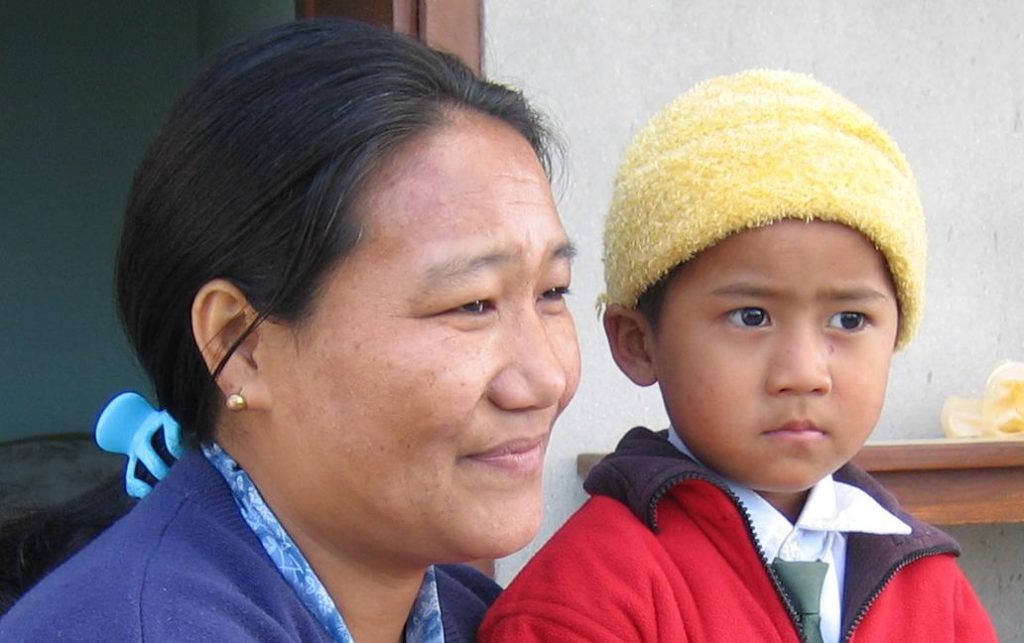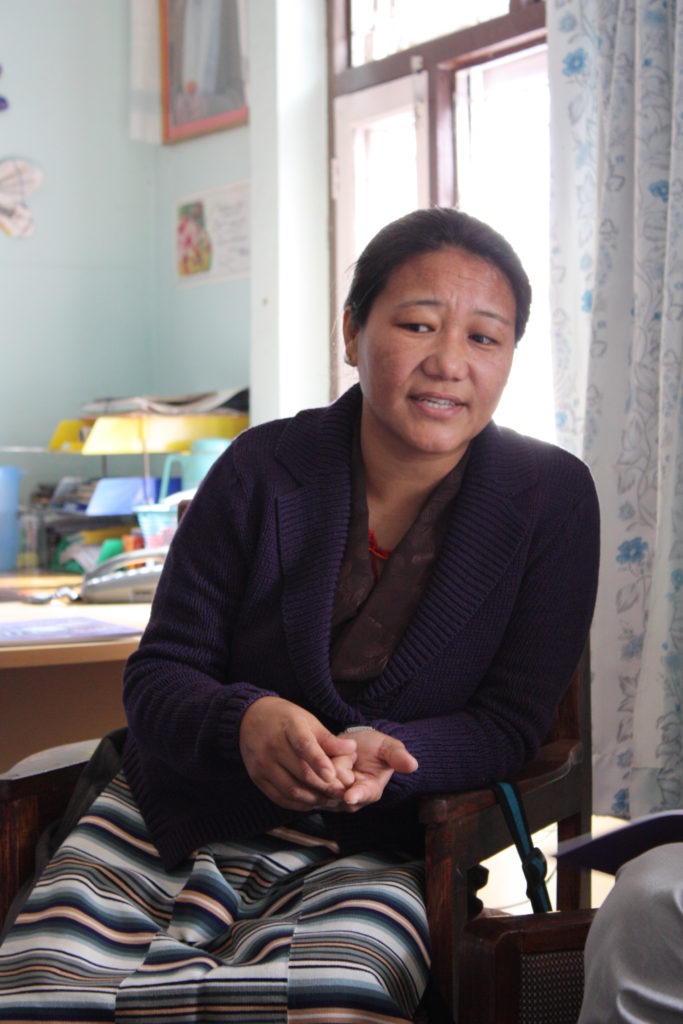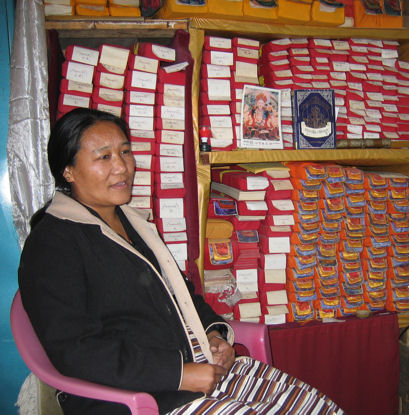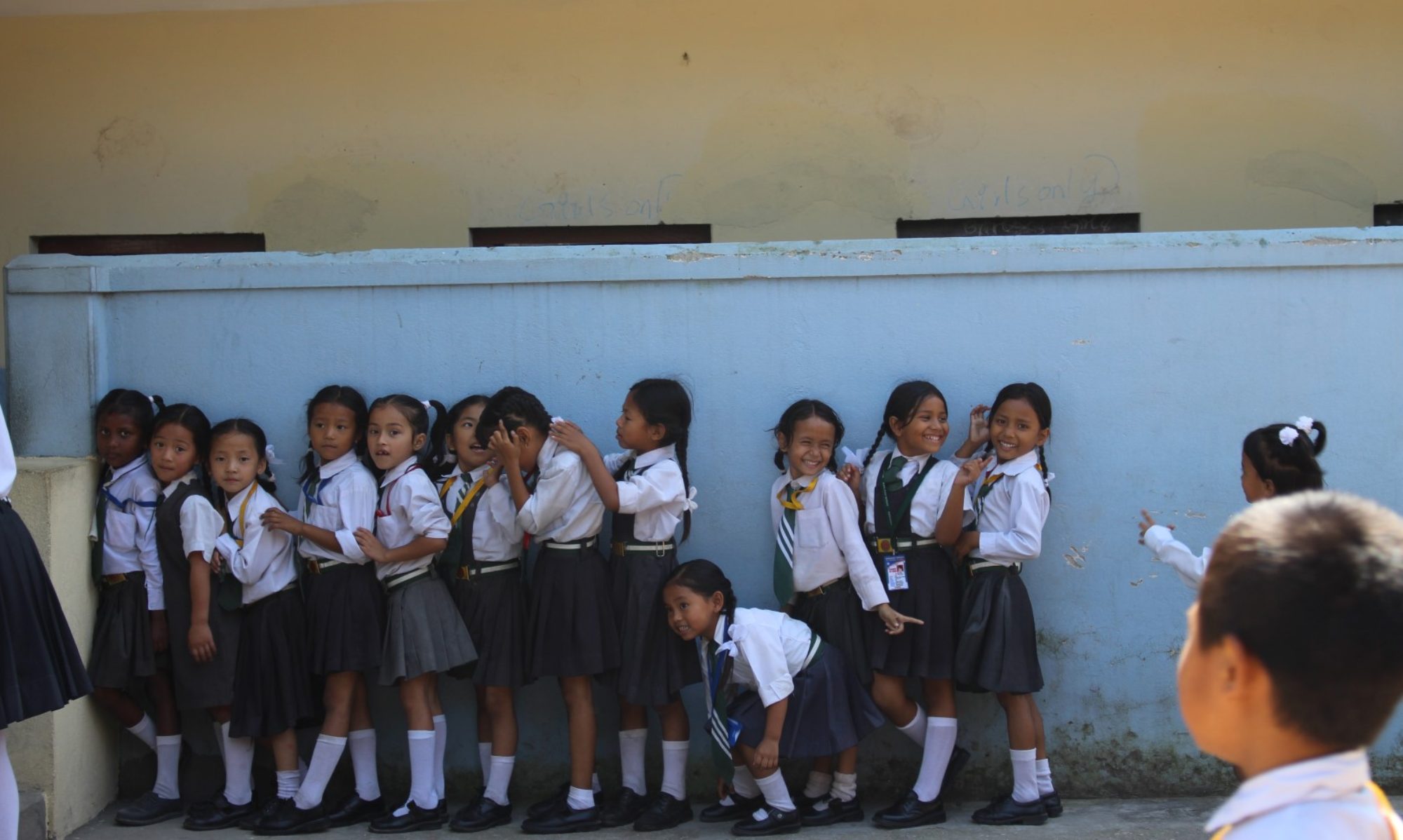Rektor Karma Choezom
Karma Choezom er rektor for alle skolene, og holder til i Kathmandu. Hun har fått sponset lærerutdannelsen sin av foreningen (Sidsels søster betalte denne). Hun er blitt valgt som medlem av styret for en forening som arbeider med utvikling av Karnaliprovisen (Jumla er hovedstaden i Karnaliprovinsen). Hun representerer befolkningen og arbeider for utvikling.

Karma Chozom ville egentlig bli lege når hun startet sin utdannelse, men så at det var viktigere å bidra til utdannelse av sitt folk.
Lama Gondup har også startet et kloster for jenter som bla lærer seg et håndverk. De har dermed et godt utgangspunkt for et selvstendig liv hvis de ønsker å forlater kosteret, og unngår da en usikker fremtid med bla prostitusjon.

Les artikkel om skolene skrevet av rektor Karma Choezom:
Academic dilemma in Himalayan border area:
Education is one of the basic needs of man today. Nothing can be achieved in life without education. In fact it plays vital role in socio-economic development in the society. Without education, the margin of the difference between man and animal remains very thin. The educational condition of the resident of Himalayan border area in Nepal is in deplorable state. Most of the people still have no idea of the value and power of education. Children spend their time either grazing cattle or helping their parents in the farm or household chores. They are the victims of early marriages and child marriages. The people in the mountain spend whole life in trivial family matters. They are engaged in farming or animal husbandry or petty business which earns them a little above or at subsistence level. They lack awareness in all aspects of developments. In the state of ignorance they face lot of hardships in life. Lack of knowledge causes them great sufferings out of minor things. Most of them are illiterate so they cannot read and write. The literacy rate of the Himalayan people in Nepal is very low. Out of ignorance they have no idea what the state should provide to them and what they must do to the state in return. Whatever happens to them good or evil, they blame their fate only. Mountain people are peaceful by nature. Most of them follow Buddhism which teaches them to observe non-violence all the time. They are never encouraged to create any hostility in the society. So these beliefs restrict them from raising voice against their basic rights and facilities. And in most of the cases there is the lack of awareness which prevents them from understanding the system and its influence in the modern ever-changing thoughts and way of living. Lack of awareness forced them to be limited within their communities. So there is no participation in any authority level of policy making from these people. They do not have opportunities to develop and actualize their aspirations.
Among the various reasons responsible for the above condition of the mountain people, a few of them are presented here:
I. The first and foremost reason is the lack of awareness among the people. Due to the lack of awareness, they are backward in health, education and other socio-economic developments. Lack of awareness leads them to be bound within the approach of their own society which prohibits them from understanding the speed of development in the other societies. They never care for the positive changes in their neighborhood until it is too late for them.
II. Poverty and remoteness is another cause for the low literacy rate in the mountain. The region being very far and remote from the central government, received less attention. The negligence of the state towards the needs and necessity of the high Himalayan border people also pushed them backward in the field of education and developments.
III. The prevailing number of schools of different levels is insufficient. Owing to difficult geographical landscape, settlement/villages are situated far away from each other. Common schools being built for few villages altogether, children need to cover long distance to go to school and attend their class. So, on bad weather days, it becomes impossible for them to walk through the steep mountain trail. The harsh, long and cold weather in winter makes the teachers and staffs leave the area as they come from other warmer districts. In this way the school never fulfills the demanded working days in a year which have a diverse affect in the quality of education. There is no control over the matter because of the poor administration from the govt.’s side. Finally this results poor or no academic quality of the students.
IV. Since most of the teachers in the government run schools come from the Nepali speaking background, the children in pre-primary and primary classes from this community who speak their mother tongue in the family, suffers a lot in the initial stage of their learning. More over because of the low quality of the education standard at the public schools, student cannot compete with their counterpart after completion of education in the school and at last end up with frustrations.
V. And one of the reasons may be that there isn’t any role model in the whole society who has been successful through academic achievements after receiving formal education. Many of the people in the society only follow what they see and experience in their society. Awareness campaign should be accompanied by other means of encouragement programs.
VI. Another reason might be the comparison of knowledge with money. In today’s monetary era, everything is measured with money. The difference of economic status between the have’s and the have’s not, influence the society. Because the people enjoying post and status from another society live an easy and comfortable life which makes the other group envy and they commit all sort of tricks and maneuver to earn more money. In this way the situation of genuine labor and educational environment degrades.
VII. State policy and its administration is also a constraint for the development of the minorities. One such example is the shortcoming and weakness in the selection process to fulfill the vacancy for the government job. The custom of favourism or corruption prevents the minorities and underprivileged to get selected. The one with a strong support from either beauracratic level or political parties will get the privilege. So many a people get discouraged with this kind of corruptions as nothing is done fairly and honestly. This leads them to disappointment. It is a crucial fact that till to this day not a single person from this group is at any level of top civil service posts in Nepal.
VIII. Lack of opportunities of employment also discourages the youth. After all the hard works done through out their childhood and teen ages they get their degree certificates in the end, but with this certificate, they fight for a govt. job which is almost reserved for the privileged ones and this group has to eventually settle down with a private enterprise for which they are not paid well to live a respectable life.
Much has to be done to bring a change in the educational situation in the Himalayan border area. Among them the first priority is the campaign of awareness among people. To encourage them, the authorized department should provide scholarship and seat for meritorious student with potential to pursue higher and professional studies. Then and only the whole community will be stirred. A kind of new hopes might be kindled in the society and people will show interest and willingness to endure a complete course of a special study when they see a few successes.
Number of schools must be increased and prevailing schools needs to be upgraded. The building structures and facilities at the schools have to be improved. The government should build hostels for the children coming from long distance or neighboring villages in those areas. A subject on their mother tongue should be included with the provision of one or more teacher’s quota in every school in the Himalaya. Locals or educated people with the language and cultural background should be given the priority at the time of new recruitments of teachers. Students must have lessons on traditional norms and values and cultural preservations. Monastic way of education should either be included in the conventional education system or approved as equivalent. The Gonpas/Monasteries should be recognized and taken care of. A good number of institutions for higher studies as well as technical education must be established so that students don’t need to travel to the capital city for continuing their studies. Qualified and dedicated teachers should be employed. Teachers in the remote mountain must be given with extra facilities and allowances. Teachers should be encouraged by training program. They must be updated with latest information of fast changes in teaching/learning process round the globe. On the part of the teachers, must be aware of the professional values and responsibilities and try to make the best out of what is available for self satisfaction as well as to attract love and respect from others.
The inclusiveness of the nation will have its genuine meaning when the state includes people and places from all corners of its nation. A garden will really look beautiful when all kinds of flowers are equally loved and taken care.
By:
Karma C. Lama
Social Worker

